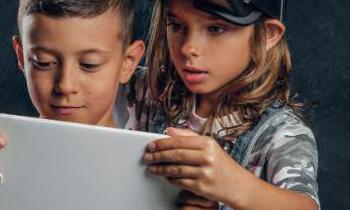
As parents, caregivers, and educators, we play a pivotal role in shaping our children's ability to interact, communicate, and thrive in various social settings. In this article, we delve into effective socialization strategies that not only promote healthy development but also lay a strong foundation for a fulfilling and successful future.
The importance of socialization for kids
Socialization forms the cornerstone of a child's cognitive, emotional, and psychological growth. It goes beyond mere playdates; it's a dynamic process through which children learn to navigate emotions, share, compromise, and express themselves. These skills are invaluable, shaping their self-esteem, resilience, and overall well-being. Research underscores the critical role of socialization in shaping a child's brain development, language acquisition, and emotional intelligence.
Creating a nurturing home environment
The first social interactions a child experiences usually occur within the family. To foster healthy socialization, it's essential to create a nurturing home environment where open communication and empathy thrive. Engage in regular family discussions, where everyone has a chance to express their thoughts and feelings. This not only strengthens bonds but also teaches kids the art of active listening and effective communication.
Enriching peer interactions
As children venture beyond the home, peer interactions become pivotal. Encourage playdates and group activities that promote teamwork, cooperation, and conflict resolution. These experiences expose children to diverse perspectives and teach them the value of compromise, helping them develop essential interpersonal skills that extend well into adulthood.
The role of structured activities
Structured activities, such as team sports, art classes, or scouting, provide an excellent platform for socialization. Engaging in these activities exposes children to a structured social setting, where they learn discipline, time management, and teamwork. These activities also offer opportunities to interact with peers who share similar interests, facilitating the development of lasting friendships.
Leveraging technology wisely
In today's digital age, technology is omnipresent. While it can be a useful tool for learning and connecting, excessive screen time can hinder social development. Balance is key. Encourage the use of technology for virtual playdates or educational games, but also emphasize the importance of face-to-face interactions. Teach kids about digital etiquette and responsible online behavior to ensure a well-rounded social experience.
Cultivating empathy and emotional intelligence
Empathy is a cornerstone of effective socialization. Help children understand and recognize emotions, both their own and those of others. Encourage them to step into others' shoes and consider different perspectives. By fostering emotional intelligence, children learn to navigate complex social dynamics, resolve conflicts peacefully, and form deeper, more meaningful connections.
Encouraging community involvement
Engaging in community service projects as a family not only contributes to the betterment of society but also teaches children the value of giving back. Volunteering exposes them to diverse communities and allows them to develop a sense of social responsibility. These experiences help children develop a broader worldview and an appreciation for the richness of human diversity.
Nurturing lifelong social skills
In a world where meaningful relationships and effective communication skills are paramount, nurturing socialization in kids is an investment in their future success and happiness. By creating a supportive home environment, encouraging peer interactions, engaging in structured activities, and promoting empathy, we equip our children with the tools they need to navigate the complexities of human interaction. As parents and caregivers, we have the privilege and responsibility to guide them on this journey, ensuring they grow into well-rounded individuals who contribute positively to society.




